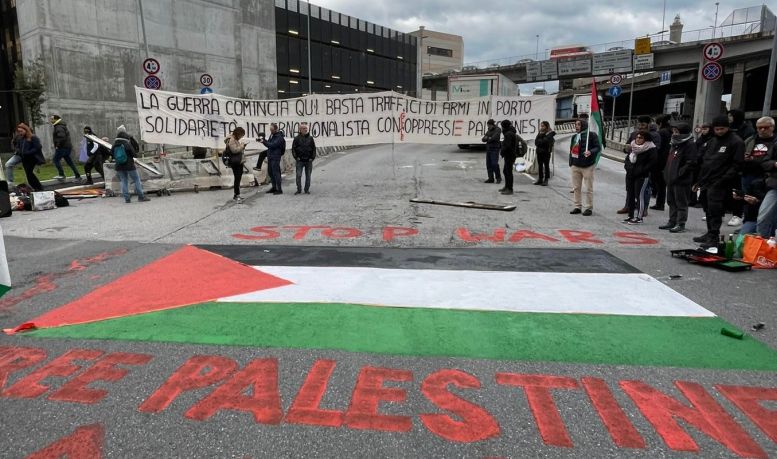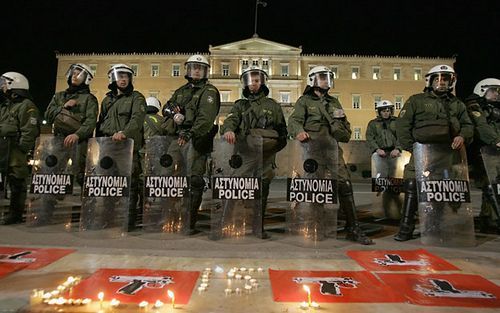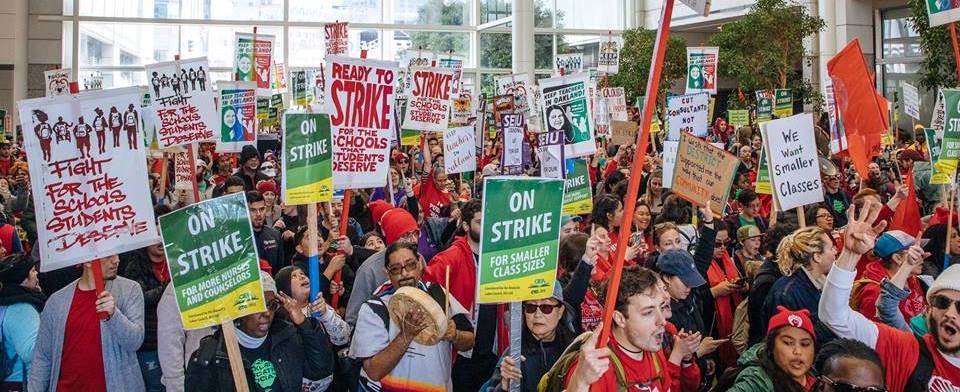Philip Chmel is a member of Linkse Socialistiche Partij / Parti Socialiste de Lutte (ISA in Belgium).
In many countries, workers and youth have taken actions against the shipment of arms to Israel and the massacre in Gaza. This has been urgently necessary and needs to be generalized and escalated.
These actions follow a call by Palestinian Trade Unions from October 16 to “End all complicity, Stop Arming Israel”. Their statement contains five concrete points addressed to trade unions and workers internationally:
- To refuse to build weapons destined for Israel.
- To refuse to transport weapons to Israel.
- To pass motions in their trade union to this effect.
- To take action against complicit companies involved in implementing Israel’s brutal and illegal siege, especially if they have contracts with your institution.
- Pressure governments to stop all military trade with Israel, and in the case of the US, funding to it.
On October 31, Belgian unions (ACV Puls, BTB, BBTK and ACV–Transcom) in the transport sector declared in a joint statement that their members will refuse to handle arms destined for the Israeli state to be used in its assault on Gaza, which has already genocidal features.
Since then, dockworkers and unions in Catalonia and Genoa (Italy) have also taken action against arms shipments to Israel, as have workers and youth in other countries. Dockworkers affiliated to the Italian unions USB (Unione Sindacale di Base) and SI Cobas (Sindacato Intercategoriale Cobas) are supporting boycotts of weapon transfers in Italian ports, specifically the Israeli ZIM shipping line, a major transporter of armaments.
In Australia, hundreds of trade unionists and demonstrators have forced an Israeli ZIM ship to reschedule its arrivals at Melbourne port and Port Botany in Sydney through protests and port occupations. In the United States, hundreds of protesters gathered in Oakland and Tacoma to block military ships bound for Israel. In St. Louis, youths blocked the entrances to a Boeing factory and in Toronto, Canada, over 100 workers and activists blocked the entrance to the weapons manufacturer INKAS, which boasts in the press that it has “supplied the government of Israel with more command & control units than any other supplier in history.” Across the Atlantic in Britain, workers and activists blocked a BAE Systems arms factory in Kent as well as several sites of Elbit Systems and its subsidiaries, among them the factories in Kent and Shenstone. Elbit Systems is one of the largest Israeli arms manufacturers and produces 85% of Israel’s land-based military equipment as well as its surveillance and combat drones.
In South Africa, members and supporters of the Workers and Socialist Party (ISA in South Africa), participated on Friday, November 10, in a protest outside of Paramount Group’s headquarters. The company has ties to Elbit Systems and offices in Tel Aviv.
Moreover, there have also been protests by workers in solidarity with their colleagues of the same profession that are being slaughtered in Gaza by the rightwing Israeli regime. Palestinian media workers including the Palestinian Journalists Syndicate marched on Tuesday November 7 in Ramallah to condemn the murder of their colleagues. In the US, “media workers led a march to The New York Times and later occupied the paper’s building entrance for over an hour” also to oppose the New York Times’s biased reporting, and health care workers across several countries organized protests as part of the international outcry after the devastating bombing of the Al Ahli Arab Hospital on October 17.
Like the All India Central Council of Trade Unions or the Japanese Doro-Chiba (National Railway Motive Power Union of Chiba), many unions and union federations in many countries have issued statements in solidarity with the people in Palestine and called for an immediate stop to the slaughter in Gaza. Some have gone a step further and joined or called for demonstrations, like the French union confederations CGT and Solidaires. These are important steps that can also help push back against rightwing forces whipping up islamophobia and governments trying to repress or undermine the movement.
Former British Home Secretary Suella Braverman’s comments, for which she was sacked, calling the demonstrations against the massacre in Gaza “hate-marches” and “pro-Palestinian mobs,” are disgusting. Unfortunately, however, these are just the most extreme version of more widespread attempts to undermine the legitimacy of solidarity demonstrations and insinuate that they support terrorism. The British government unsuccessfully attempted to ban the pro-Palestine march on November 11, while France and Germany banned solidarity demonstrations at the beginning of the movement. They had to change positions since, given the growing pressure from below, which also led to the call by Belgium’s deputy prime minister for sanctions against Israel. And as ISA reported, in Egypt the al-Sisi regime “was forced to authorise the first nationwide protests in a decade. When protesters were trapped near Cairo’s Tahrir Square, the chants turned anti-regime. The slogan “Where are the Arab armies?” was answered with “Here they are, the Zionists”, referring to the riot police.
This shows that it is not just the cold geo-political calculations of capitalist governments, but the living class struggle that ultimately decides the course of history and currently millions of workers and oppressed across the globe are making it very clear that they will not let the ruling class get away with their murderous actions. It therefore goes without saying that the union statements and mobilizations need to serve as a springboard and the industrial actions taken so far by a handful of trade unions need to be generalized and escalated.
Workers and youth the world over need to play an active role in this. Together with the growing mass demonstrations, direct actions, student walkouts (e.g. in Spain, Britain or across the US) and solidarity committees (e.g. at several French universities), can serve as a call to action for the wider workers’ movement and help put pressure on trade union leaderships to organize strike actions against the slaughter in Gaza. We need to build a mass movement, including coordinated mass strikes and democratic struggle committees in the spirit of the first Intifada (1987–1993), the 2021 dignity strike and the feminist revolutionary movement in Iran last year. Fundamental change can only be achieved through struggle of the masses — internationally and within the region. To be successful and withstand repression and attempts to derail the struggle (for example, the 1st Intifada was so powerful that it forced the imperialist powers to come up with the 1993 Oslo Accords, which served however only to betray the struggle) history has shown that mass movements need a democratically elected and effective leadership and a clear program.
Such a movement would also prepare the ground to fight against the growing militarization and all forms of imperialism and war. The demonstrations and strikes against arms shipments should be strengthened and expanded into struggles against the military industrial complex as a whole. Hundreds of billions are spent on arms by capitalist governments that try to make the working class pay for their machinery of war through cuts in education, social and health care. While arms manufacturers are raking in billions, this means death and destruction for working class and oppressed people in Gaza and the world over.
The industry needs to be nationalized and put under democratic workers’ control to stop the production and delivery of arms to Israel for good as well as to democratically discuss and decide how the workers’ skills and machines could be used for socially useful production instead. The powerful struggles for the conversion of the arms industries in the 1970s at Lucas Aerospace in Britain and in the 1980s at over 40 West German companies can serve as inspiration in this direction.
The immediate struggle of workers, youth and oppressed people internationally is to generalize and escalate the movement to end the massacre in Gaza and fight the occupation. Democratic committees in schools, universities, workplaces and neighbourhoods will be key to draw in more layers as well as to discuss program, strategy and actions. On this basis, we can also develop the struggle against our own governments to stop funding the war and end all military and financial support to the Israeli regime as well as to stop the militarization. The billions of dollars must be invested in public services instead.
We echo the call of our comrades who build the fight in the region on the ground “to stop the war, to overthrow the regime of occupation and siege and to end the national oppression of the Palestinian masses, as part of building a struggle for a life of equality, well-being and genuine peace for all working people, the poor and the youth, from all national communities within the framework of the necessary socialist change in the region.”



